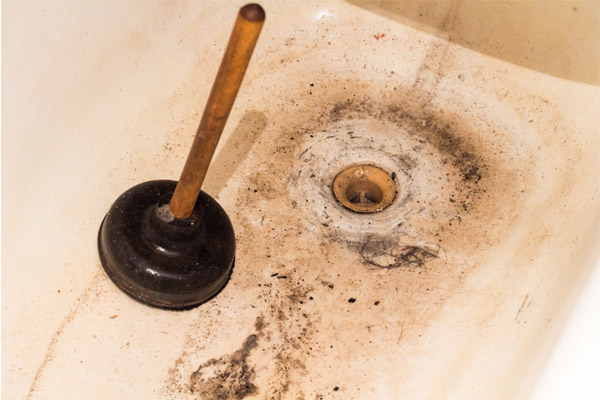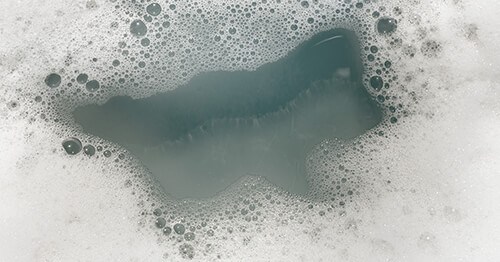Best Reasons for Drainage Coming Up in the Bathtub
Best Reasons for Drainage Coming Up in the Bathtub
Blog Article
What are your beliefs on Why is There Sewage Coming Up Through the Bathtub?

Sewage backup in the bath tub can be a stressful and unsanitary trouble for any kind of house owner. Not just is it bothersome, yet it also positions severe wellness threats and indicates underlying problems with the plumbing system. Understanding why sewage is showing up with the bathtub is crucial for taking suitable action to deal with the issue efficiently.
Intro to the Issue
Understanding the Problem
When sewage draws back up into the bathtub, it's a clear sign of an issue with the water drainage system. The wastewater that ought to be streaming away from your home is rather locating its way back right into your space, which can bring about considerable damages and carcinogen.
Possible Reasons
Several elements can contribute to sewage backup in the bathtub. From blockages in the sewage system line to issues with the plumbing infrastructure, identifying the source is crucial for locating a solution.
Common Factors for Sewer Back-up
Clogs in the Drain Line
Among one of the most typical sources of sewer back-up is a blockage in the sewage system line. This can take place because of the accumulation of particles, grease, or international objects in the pipes, stopping correct circulation and creating sewer to support right into your tub.
Tree Origin Intrusion
Tree origins looking for wetness and nutrients can penetrate sewer lines with small cracks or joints. With time, these roots can grow and expand, triggering considerable damage to the pipelines and bring about sewer backup problems.
Aging Facilities
Older homes might have outdated plumbing systems that are a lot more at risk to rust, cracks, and deterioration. As pipelines age, they become a lot more susceptible to leakages and obstructions, enhancing the chance of sewage backup events.
Heavy Rainfall or Flooding
During durations of heavy rainfall or flooding, the drain system might end up being overwhelmed with excess water, causing backups and overflows. This can lead to sewer backing up right into bath tubs and various other fixtures inside the home.
Health Dangers Associated with Sewer Backup
Contamination of Water System
Sewer backup can contaminate the supply of water in your house, posing a major wellness risk to you and your family. Direct exposure to infected water can result in stomach problems, skin infections, and other illnesses.
Spread of Illness
Sewage consists of harmful bacteria, infections, and parasites that can trigger a variety of illness, including hepatitis, cholera, and gastroenteritis. Entering contact with sewer or contaminated surfaces places you in danger of infection.
Mold and mildew Development
Wetness from sewer backup can create optimal problems for mold and mildew development in your home. Mold and mildew spores can exacerbate respiratory system issues and trigger allergies in sensitive individuals, making punctual cleanup essential.
Indications of Sewer Backup
Foul Odors
Undesirable smells emanating from drains or fixtures, specifically in the bathroom, may show sewage back-up concerns. These smells are usually strong and relentless, indicating an issue that requires instant interest.
Slow Draining Fixtures
Bathtubs, sinks, and commodes that drain gradually or otherwise whatsoever could be experiencing sewer backup. If numerous fixtures are impacted at the same time, it's likely that the problem stems from a common point, such as the primary sewage system line.
Gurgling Noises
Odd gurgling or gurgling sounds originating from drains pipes when water is running elsewhere in the house are indicative of air entraped in the plumbing system. This air build-up can result from sewage backup and need to be examined promptly.
Immediate Actions to Take
Switching Off Water Supply
In case of sewer backup, it's important to turn off the water to prevent further contamination and damages. Locate the primary water shutoff valve in your house and closed it off until the concern can be resolved.
Calling a Professional Plumber
Managing sewage backup is not a DIY task. Get in touch with a qualified plumber with experience in handling sewage-related problems to assess the situation and do essential fixings or clean-ups.
Avoiding Contact with Contaminated Water
Until the sewage backup is dealt with, prevent contact with infected water to avoid the spread of microorganisms and pathogens. Wear safety gear if you should remain in the afflicted location and clean your hands extensively afterward.
Safety nets
Routine Maintenance of Drain Lines
Set up normal assessments and upkeep of your sewage system lines to determine and address potential concerns prior to they escalate into significant troubles. This can include cleaning out particles, evaluating for tree origin invasion, and repairing any type of broken pipes.
Mounting Backwater Shutoffs
Take into consideration installing bayou shutoffs in your plumbing system to prevent sewer from flowing back into your home during periods of heavy rainfall or flooding. These shutoffs instantly close when water draws back up, securing your home from contamination.
Proper Disposal of Home Waste
Avoid purging anything besides toilet paper and human waste down the bathroom to prevent obstructions and blockages in the sewage system line. Dispose of oil, oil, and various other household chemicals appropriately to decrease the risk of plumbing troubles.
Cleaning Up After Sewage Back-up
Disinfection Procedures
Thoroughly decontaminate and sanitize influenced locations after sewer backup to remove hazardous microorganisms and stop mold growth. Use suitable cleaning items and safety equipment to make certain safe and effective cleaning.
Repair of Impacted Areas
Fix any type of damage to floor covering, walls, or fixtures caused by sewer backup. Depending upon the degree of the damages, you might require to change carpeting, drywall, or various other products to recover your home to its pre-loss problem.
Why Is Water Backing Up in My Bathtub When I Flush My Toilet?
What to do about a sewer line clog
First, don’t bother with plunging. No amount of plunging will dislodge the clog in a sewer line. The clog is too far away. Plungers are for clogs in the toilet itself, not the sewer line. Plus, the most likely causes of a sewer clog are:
Tree roots Flushed toys or feminine products Grease buildup Those items don’t move easily. And in the case of tree roots, the roots need to be cut out of the pipe and the pipe will need to be repaired.
You’ll need a closet auger. A closet auger is a type of plumber’s snake with a protective cover to keep from scratching the delicate porcelain toilet. If the clog is further down, you may need to remove the toilet or use one of your cleanouts to get to the clog.
We also recommend doing a video inspection of the drain to ensure that the cause of the clog has been completely removed. Otherwise, you could have the same problem again in a few days or weeks.
https://mspplumbingheatingair.com/blog/why-is-water-backing-up-in-my-bathtub-when-i-flush-my-toilet

As a passionate person who reads on Why sewage is coming up through your bathtub, I think sharing that excerpt was a good thing. Loved our entry? Please share it. Help other people check it out. Thanks a lot for taking the time to read it.
Book Service Now
Report this page